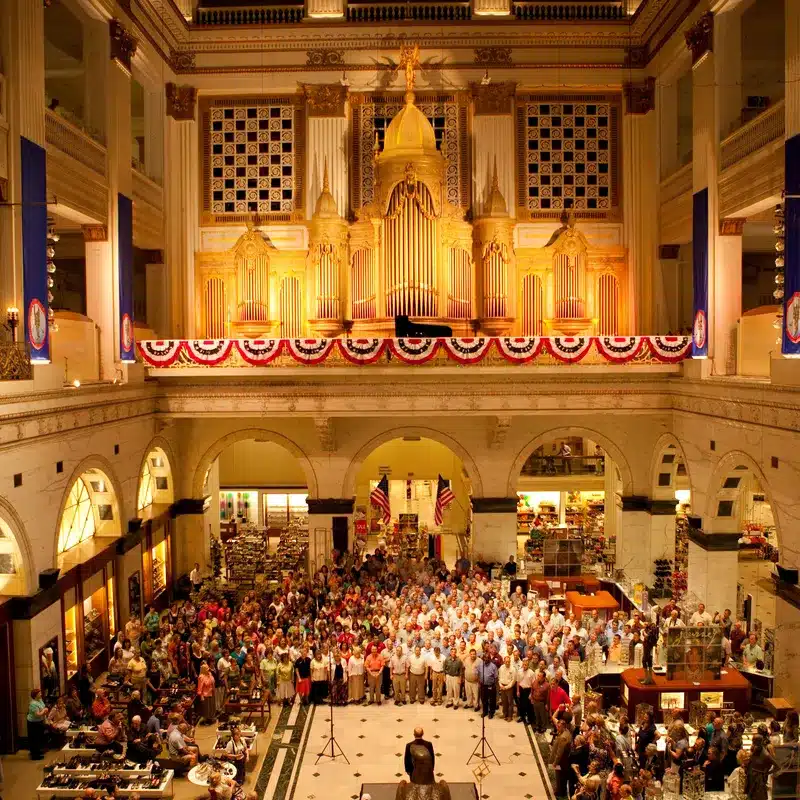Bruckner review of the year (so far)
mainAt one point I caught myself thinking, ‘How did this man ever write four-part motets? He can’t even write basic soprano-bass counterpoint.’ The one time the bass did anything it was that tired descending line borrowed from Meistersinger, which created only a momentary interest of passing dissonance. And that trite scherzo – I spent the whole time wishing Mahler had written it.
Read full (fun) review here.
More, please….






Read full (fun) review where?
http://www.throwcase.com/2015/05/21/brahms-fan-forgets-how-bad-bruckner-is-almost-dies-during-symphony/
http://www.throwcase.com/2015/05/21/brahms-fan-forgets-how-bad-bruckner-is-almost-dies-during-symphony/
Review is here: http://www.throwcase.com/2015/05/21/brahms-fan-forgets-how-bad-bruckner-is-almost-dies-during-symphony/
Here’s a link: http://www.throwcase.com/category/guest-author/
here:
http://www.throwcase.com/2015/05/21/brahms-fan-forgets-how-bad-bruckner-is-almost-dies-during-symphony/
I suppose
Which symphony? Conductor? Orchestra! Don’t be coy/shy. Reprisals unlikely.
https://www.musikverein.at/konzerte/konzertprogramm.php?idx=132503
Just to add to this wonderful Neanderthal review:
(Interviewer): ‘Master, how did you think of the divine motif of your Ninth Symphony?’ (Bruckner): ‘I sat down by a little brook, unpacked my Swiss cheese, and that darn tune popped into my head!’ (Anton Bruckner)
Yes, yes, YES! Ever since I first went to a Bruckner concert (as a student in 1966), I have always thought the same! Over the years, I have tried to get into his music, thinking that perhaps my immature opinion was unjustified, hasty, superficial – but no, nothing has changed for me! I can do no more than echo the reviewer’s opinions! – except to say that at last someone has the courage to say in print what I (and I’m sure quite a few others) have been thinking for a looooooooooooong time!
Unfortunately, Alexander, that just means that you are as immature a music listener as you were in 1966, a full half century ago…
And it has nothing to do with “at last someone has the courage to say in print what I (and I’m sure quite a few others) have been thinking for a looooooooooooong time!” – there are many musicians and music lovers who find plenty of depth and musical meaning in Bruckner’s music – your loss, I guess! I guess that also means that there is a lot of other music that you don’t “get”, and that you are similarly proud of not “getting”…well, at this point it’s probably too late anyway.
Bruckner’s music is like a rough rocky landscape with unexpected paradises in between. It’s not a polished piece of furniture in a sophisticated salon.
I think Bruckner’s symphonies are among the most “polished” and “crafted” works of music I can think of. No wonder, he spent many years working on most of them and in some cases revised them several times over. But mot of them, at least from the later versions of #4 on, are highly crafted and coherent pieces.
Absolutely and totally agree!! I give up after 10 minutes – and this after 50 plus years of listening to and studying art music!!
There’s one thing I never understood:
How come people who don’t get Bruckner are PROUD of it and feel the need to rant about him? I don’t get Verdi most of the time, but I do not feel the need of writing bad things about him (and I’m sure I’d succeed if I tried). Why this strange pride?Overcompensation?
If you don’t like Bruckner, just listen to something else; end of story.
How strange that such a “bad” composer should cast such a spell on orchestras, conductors and audiences.
Because the fact that they don’t “get” the music while many others do provokes these people and it makes them feel uncomfortable, so they have to “vent” and shoot it down, in effect, tell people “no, it is *you* who are so dumb because *you* have been fooled into thinking that is good music”.
It’s just the natural reaction of an intellectually immature person, that’s it.
And, sadly, there is another element on top of it, particularly when it goes through this blog, and that is primitive tribalism. Favor your tribe, shoot down proponents of the other tribes…
Probably true, but when it comes to this specific behavior, I think it’s maybe less “tribalism” than just individual stupidity…
Have to agree with the review, despite it’s somewhat humorous tone. Don’t often agree with Lebrecht, but he’s got it right this time. Well written Bruckner review from somebody who knows the subject matter very well!!
I’m not sure which (fun?) review we’re supposed to read; if indeed it’s that one Jan de Jong refers to, then it’s garbage.
Bruckner is one of the greatest (German) romantic composers and always makes a VERY welcome alternative to Mahler (ˇ︿ˇ)
ps. and I’m speaking as someone whose favourite composer is Brahms (that is, after Shostakovich…)
“Bruckner is one of the greatest (German) romantic composers”
Well, that is part of the problem for Uncle Norman who abhors everything German(ic); which is why I think he doesn’t really “get” Mahler either, because Mahler’s whole musical and intellectual world was deeply rooted in German culture.
More clickbait from NL……..
Bravo, Maestro!
Incidentally, Mahler had a high opinion of Bruckner’s works and even made a version of Bruckner’s 3rd symphony for 2 pianists.
Bruckner seems to me the musical equivalent of Mahler, looking from a different perspective and angle at the world but with a similar acute sensitivity regarding tragedy and loss.
Both composer’s 9th symphony do reflect that.
Of course Mahler would have recognised Bruckner’s genius ,unlike some of the experts here on SD.
I guess it boils down to whether you like long, longer and longest – loud, louder and loudest – against other, more taught, disciplined, melodic, harmony-rich symphonists. I go for the latter. Bruckner is so yesterday.
Woah! Celibidache is rolling in his grave.
I hope he’s enjoying it then!!
that entite website (throwcase) is satirical. humour. not for real. a joke. lighten up. please. ;P
The reviewer really doesn’t have much of a clue, sorry. Bruckner is one of the very greatest symphonists that this planet has seen so far. If the occasional isolated passage is not as perfectly written/orchestrated as others may have done, the symphonic thinking, the development of the material with time is unparalleled.
Mahler was the opposite, fantastic in the minute details (what atmosphere, what orchestration!) but not symphonic, little to no sense for large scale architecture of a work. As much as I like listening to Mahler, his symphonies are mostly an amalgamation of wonderful material which however he doesn’t quite know what to do with.
Bruckner’s masterpieces (#4, #5, #7, #8, #9) are one more outstanding than the other. What magic is #5, its finale, how he brings together all the material! It is very difficult, if not impossible, nowadays to find performers who bring this out in Bruckner. His music relies more on the grand structure than on the moment, so it’s much much harder to perform his symphonies unless the performers have a sense of the architecture and bring out the relationships between the material, in tempo, in phrasing – if you don’t get this right the whole building collapses and the audience get lost.
Any mediocre performers can bring out magic and beauty in Mahler (or Tchaikovsky or Wagner) but for Bruckner (as for Mozart or Bach) it takes truly great performers, the likes of Furtwängler or Celibidache or too few others who have the sense for the inner relationships which are the foundations of the grand structures (for the case of Bruckner).
Most performances -from earlier on up till now- of Bruckner’s music suffer from a very serious desease called ‘over-all Parsifal-syndrome’ or ‘eternal sostenuto-cancer’ .
This in spite of the composer’s own, clear annotations in his scores.
That is why this genius music – a.o. a important path towards Mahler, Bruckner’s universitystudent in Vienna – can sound so very b o r i n g.
In other words: Save Bruckner From His Sostenuto-Supporters.
I don’t see that reflected in historical and recent recordings. Most early Bruckner recordings are rather on the lean side when it comes to textures and the zippy side when it comes to tempi (e.g. Hausegger, Böhm in recordings from the 30s). There were/are the occasional overly solemn interpreters, Celibidache obviously the most extreme case among them, but his performances were also generally musically very well shaped, and for many, this style of performance even came as a sort of “revelation”. But he was far from the norm. There has never been a lack of interpretations which focused on formal coherence, a steady flow and rhythmic pulse, and clarity of textures rather than “parsifalizing” the music (I guess Thielemann is a prominent example for that latter approach in our time, but I think it is not that common these days either).
I feel like the Bruckner boom and the Vivaldi revival of the latter half of the 20th Century tended to reinforce each other by making significant repetition fashionable and together they made severe minimalism more palatable.
You’re really onto something here!!!